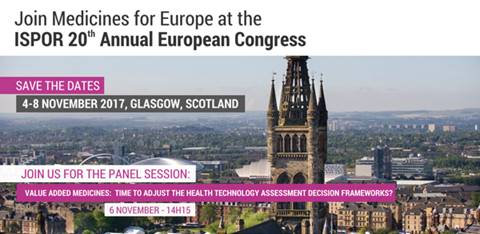- Around 500 leading European health policy experts from the worlds of policy-making, research, civil society and business debated today’s main health policy challenges over three days at Gastein.
- Participants got to grips with a wide and complex range of issues surrounding health inequalities and the need for broad political engagement and decisive action at all levels.
- On the Forum’s 20th anniversary they explored future scenarios for improving health in Europe in 2037 – and reshaping how this unique policy forum needs to evolve.
Bad Hofgastein, Austria, 6 October 2017. After three days of forward-looking and intense discussion on the future of health in Europe, the 20th European Health Forum Gastein “Health in All Politics – a better future for Europe” ends today.
Politicians and researchers at this leading health policy forum gave, for example, details of the Estonian and Austrian EU Presidency priorities on key issues such as harmful use of alcohol, ehealth, and nutrition.
On the last day of the Forum, European Commissioner for Health and Food Safety, Vytenis Andriukaitis announced the 10 initiatives that have made it on the shortlist for the EU Health Award for NGOs 2017, which aims to reward Non-Governmental Organisations that have contributed to a higher level of public health in the EU through promoting vaccination. (See here and here).
This year’s EHFG programme created a platform to air concerns about rising costs of healthcare provision, and waste within health systems. Equally, concerns to provide patients with the innovative medicines they need now dominate the political agenda at all levels. A number of Forum sessions examined the costs of innovative medicines, pointing out that already tight budgets are being put under further strain.
UK researchers used the Forum to launch a new study on the “Availability of evidence on overall survival and quality of life benefits of cancer drugs approved by the European Medicines Agency. Patients highlighted the realities of health inequalities associated with “post-code lotteries” when health authorities make choices on which medicines are available to patients. At the same time, the pharmaceutical industry sees itself confronted with mounting pressure to reduce the prices of these life-saving therapies, which are often the product of years of investment, research, and development.
Various solutions to address this problem were debated. Some called for thinking outside the box by pursuing the health angle in other areas of policy-making. Others explained the need to strike the right balance between sellers and buyers of medicines: ensuring meaningful patient engagement in innovation in all its guises becomes key to ensuring valuable innovation that addresses unmet need.
For many, the source of the problem was health inequalities that must be addressed. One session dedicated to the topic heard the powerful message that “inequalities should not be seen as a footnote to the problems that we face, they are the problems that we face”. Solutions were to be found by shifting power, wealth and resources through a multi-stakeholder approach involving academia, the public health community, regulators, and industry at all levels of government. Civil society was viewed by some as being crucial to holding governments to account. The public health community could also do more by engaging more in discussions on economic issues, e.g. in ensuring health figures in international trade agreements talks.
The role of politicians in making health policy recommendations and informed but often tough choices across all government activities was how many participants identified with the theme “Health in all Politics”.
Clemens Martin Auer, Director General of Austria’s Federal Ministry of Health and Women’s Affairs and EHFG President explained: “The world has become complex; at policy level we need some flexibility. At political level we have a box of tools. We must do more matchmaking among ministers, getting ministers of health talking to ministers of science about public investment in R&D.” (See here and here).
The Forum highlighted how cities and regions, where local politicians are often closer to citizens, could show how urban health can be improved. (See here). But it also recognised the role of the European Commission with calls for its health competence to be strengthened. Global considerations were also seen to be important in shaping our response to better health, with references Sustainable Development Goals as well steps to modernize the World Health Organization and the UN system at large.
Whether on the sensitive topic of access to medicines and innovation, or on how to embrace big data and ICT, EHFG demonstrated its value in creating an environment for people to talk “to” each other and not “past” each other. With a degree of consensus around the view that fundamental access and inequity challenges facing Europe today, need a collaborative, solution-oriented mind-set involving all stakeholders, at all levels of government from local to global, with above all a real sense of urgency. (See here).
As the new EHFG President, Mr Auer shared his vision of the role the Forum can enact in tackling the many topics facing those involved in health policy making: “we need to start transforming ideas into implementation, become a test lab for ideas for a new kind of implementation dialogue that looks at the how”. Building on the 20-year legacy of EHFG as an environment conducive to a balanced and civilised debate, he explained there was a need to be creative and overcome silo working, fragmentation and promote interoperability. He warned that “there is no creativity without confrontation, but we can build on a strong foundation of trust”.
Change and the degree to which we can prepare for the future underpinned many sessions. The topic of Big Data and technological innovation highlighted how the health landscape is changing, offering exciting vistas of how access to digital technologies can make societies more efficient and bring people together by providing value-added services. (See here). But Big Data and digital transformation can re-enforce disparities, be disruptive and make us rethink our perspectives on ethics and quality of care. Indeed, one of the “health future” scenarios for 2037 was based on looking at how technology can create a new vision of better health for Europe.
Dorli Kahr-Gottlieb, Secretary General of EHFG, presented the “Health Futures Project” looking to scenarios for better health futures twenty years ahead. Upon learning that 5% of Estonia’s population know their genomes, she commented on “how some aspects of the futures thinking presented in the scenarios were already reality in some parts of Europe”. (See report here).
“This demonstrates clearly that Europe’s diversity is a huge strength, and the Forum’s goal of sharing and drawing lessons from health policy successes and failures is hugely important for fast-tracking much-needed solutions to ensuring a better health for Europe.”
***
Note to the editors
About the European Health Forum Gastein
The European Health Forum Gastein (EHFG) was founded in 1998 as a European health policy conference. It aims to provide a platform for all stakeholders from the field of health and beyond. Over the past decade, the EHFG has established itself as an indispensable institution in the broad field of European health policy. It has made a decisive contribution to the development of guidelines and above all the cross-border exchange of experience, information and cooperation. Leading experts participate in the annual conference held in the Gastein Valley in the Austrian Alps for three days in October.
EHFG media releases 2017
PRESS RELEASE: 20th edition of European Health Forum Gastein 2017 opens its doors tomorrow
https://www.ehfg.org/fileadmin/downloads/21-press/2017/docs/Press_Release_EHFG_2017.pdf
PRESS RELEASE: European Health Award 2017 goes to Gen-Equip project https://www.ehfg.org/fileadmin/downloads/21-press/2017/docs/Press_Release_-_Winner_Short.pdf
PRESS POINT: Health in all politics
https://www.ehfg.org/fileadmin/downloads/21-press/2017/Press_Release_Health_in_All_Politics.pdf
PRESS POINT: Local Health for Politics
https://www.ehfg.org/fileadmin/downloads/21-press/2017/EHFG_2017_Press_Point.pdf
MEDIA ADVISORY: Access to medicines and innovation
https://www.ehfg.org/fileadmin/downloads/21-press/2017/Media_Advisory.pdf
MEDIA ADVISORY: Big data
https://www.ehfg.org/fileadmin/downloads/21-press/2017/Big_Data.pdf
PRESS POINT: Global perspectives on health in all politics
https://www.ehfg.org/fileadmin/downloads/21-press/2017/EHFG_2017_Press_Point_Friday_6_October.pdf
20 YEARS EHFG
https://www.ehfg.org/about-us/20-years/
If you have any questions or comments, please feel free to contact:
European Health Forum Gastein 2017 – Press office
E: press@ehfg.org T: +32 2 321 90 16













